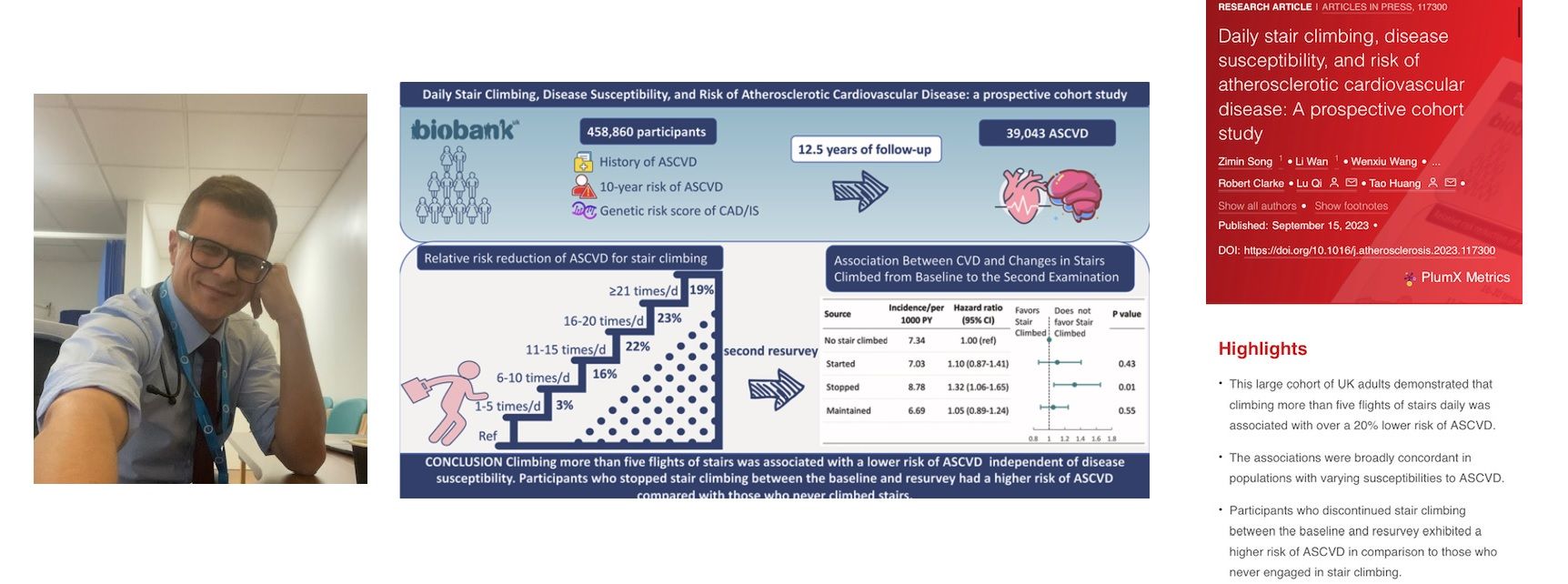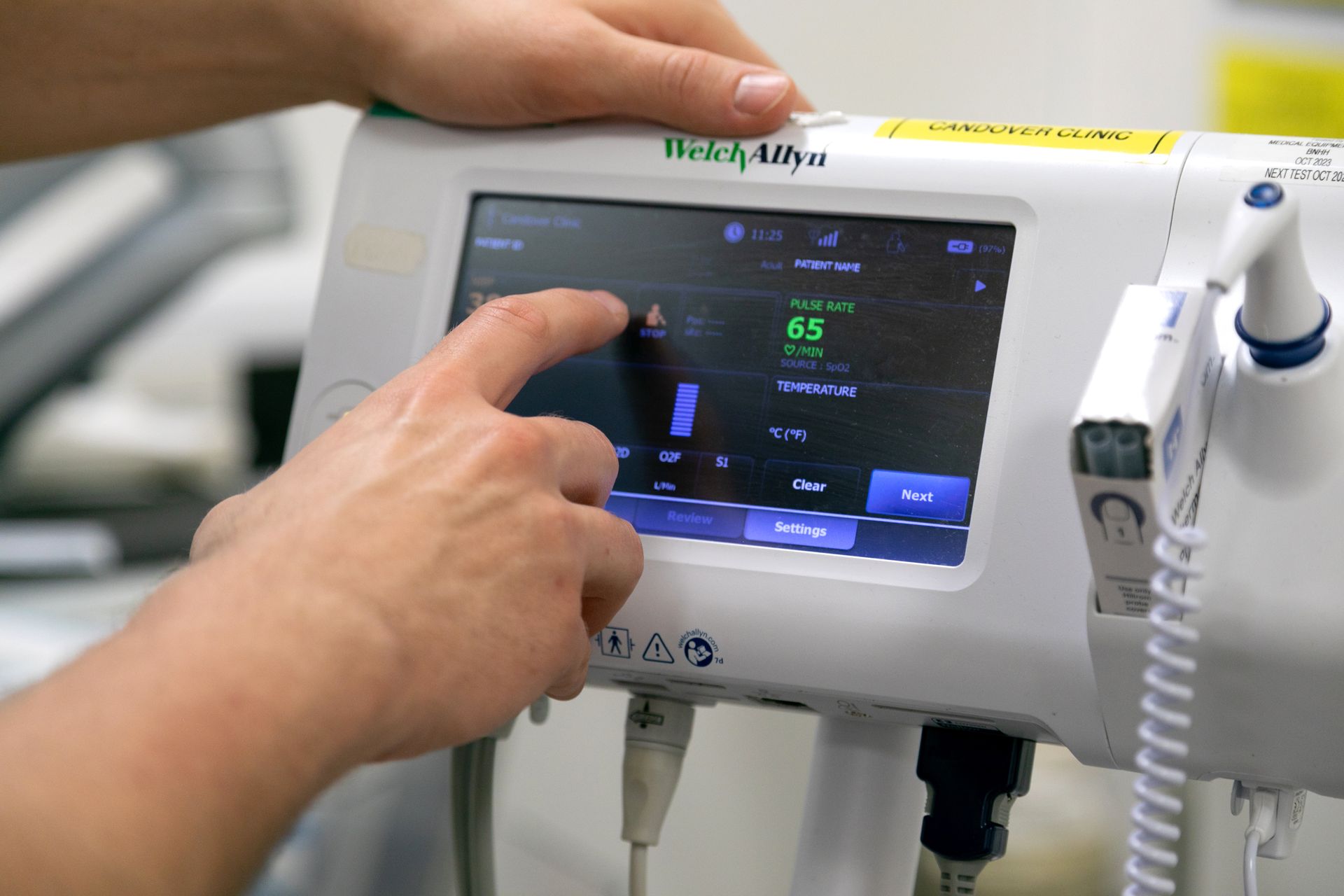Can using STAIRS reduce Your risk of Heart Disease?

Climbing more than 5 flights of a day REDUCES risk of Atherosclerotic Cardiovascular Disease by 20%, claims the study above published in 'Atherosclerosis' journal in September this year.
- It was a large prospective, observational study, which included over 450 000 individuals with a 12.5 median follow up.
- Atherosclerotic Cardiovascular Disease included Ischaemic Heart Disease, Stroke of ischaemic aetiology or acute complications.
- In comparison to participants who did not use stairs at all, those who climbed 6-10 flights of stairs had a relative risk reduction of 16% and those who climbed up to 16-20 flights of stairs a day, had a relative risk reduction of 23%. Nicely illustrated in a cartoon above.
- Interestingly also, individuals, who stopped climbing stairs experienced 32% higher risk of Athoresclerotic Cardiovascular Disease.
-Five flights of stairs equals approximately, 50 steps.
Link to the article ⬇️:
https://www.atherosclerosis-journal.com/article/S0021-9150(23)05221-8/fulltext
---------------------------------------------
📸 taken at Sarum Road Hospital in Winchester, where Dr Bart Olechowski sees private patients every Wednesday evening.
=========================================================
Using Stairs as a way to maintain healthy lifestyle.
Introduction:
Maintaining a healthy heart is a paramount concern in our fast-paced lives, and simple lifestyle choices can significantly impact cardiovascular well-being. One often overlooked yet powerful method to enhance heart health is incorporating the use of stairs into our daily routines. This practice not only serves as a convenient form of exercise but also proves to be a proactive step towards preventing heart-related issues.
Main Text:
1. Cardiovascular Exercise and Stair Climbing:
Engaging in cardiovascular exercise is crucial for maintaining a healthy heart. Stair climbing is a natural and accessible form of cardiovascular exercise that elevates the heart rate, promoting better circulation and oxygenation of the blood. This simple yet impactful activity strengthens the heart muscle, reducing the risk of heart disease and related complications.
2. Caloric Expenditure and Weight Management:
Stair climbing serves as an excellent way to burn calories and manage weight. By regularly opting for stairs instead of elevators or escalators, individuals can contribute to weight management, reducing the strain on the heart. Dr. Olechowski, a private heart specialist, emphasizes the role of daily choices in heart health and often encourages patients to adopt simple lifestyle changes like stair climbing.
3. Improving Blood Circulation:
Efficient blood circulation is vital for a healthy heart, and stair climbing actively contributes to this. As one ascends and descends stairs, the muscles engaged promote better blood flow throughout the body. This improved circulation reduces the risk of blood clots and enhances the overall efficiency of the cardiovascular system.
4. Building Endurance and Strength:
Stair climbing is a weight-bearing exercise that not only improves cardiovascular health but also builds endurance and strength. Regular stair climbing helps strengthen the heart and other muscles, contributing to better stamina and resilience. This increased physical capacity is particularly beneficial for individuals with sedentary lifestyles or those recovering from heart-related conditions.
Conclusion:
In conclusion, the benefits of using stairs for heart health are multifaceted and supported by insights from a private cardiologist at Winchester's Sarum Road Hospital and the Candover Clinic in Basingstoke, Dr Bart Olechowski. Stair climbing offers a practical and accessible means to engage in cardiovascular exercise, manage weight, improve blood circulation, and enhance overall physical fitness. By incorporating this simple yet effective activity into daily routines, individuals can take proactive steps towards maintaining a healthy heart and preventing cardiovascular issues in the long term.











